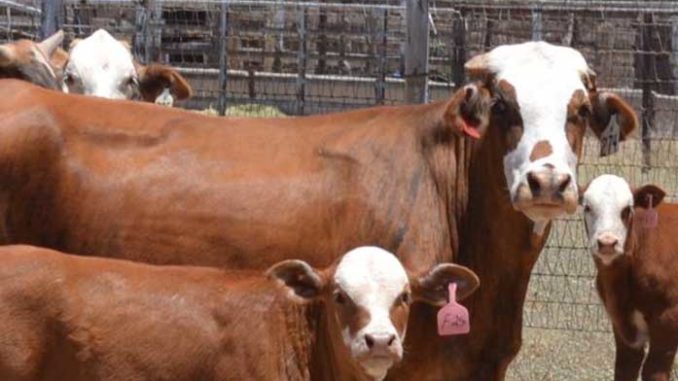
The retail cost for USA-grown beef has gone up in recent years, as has the demand for beef and the profits earned by meatpackers. But Arizona’s cattle growers say the prices they are currently being paid is at a record low.
This week the Arizona Cattle Growers’ Association (ACGA) is praising a bi-partisan request by Senator Martha McSally and 18 other U.S. Senators to have the U.S. Department of Justice look into “the precarious market situation for feeders and producers” in order to avoid “a widespread collapse” of the cattle industry.
“We are really grateful to Senator McSally for bringing attention to this issue,” said John Ladd, a longtime Cochise County rancher. “Unfortunately not many politicians understand the cattle industry and the food supply chain. If more people understood where their food comes from and more politicians cared about who is artificially pumping up prices, we wouldn’t be in the mess we are right now.”
The senators’ May 12 letter to Attorney General William Barr cites concerns of ongoing “market manipulation and coordinated behavior” by meatpackers that has hastened by the COVID-19 national emergency. One example of the concern is a slump in live cattle prices of nearly 20 percent since February, while wholesale beef prices have increased as much as 115 percent in the same period.
Barr is also being asked to consider that corporate consolidation has created “an untenable power imbalance,” leaving the nation’s four largest beef packing companies having control of more than 80 percent of the cattle industry. Those companies -referred to as The Big 4- are Cargill Meats, JSB USA, National Beef, and Tyson Foods.
“We remain concerned about the heightened allegations of suppressed prices for cattle, especially considering how coordinated conduct is facilitated more easily by high market concentrations,” the senators noted, adding that with so few packers, it is more difficult to assess reasonable industry practices.
On Thursday, Past President Jay Whetten of the Arizona Cattle Growers’ Association discussed concerns of price-gouging and monopolistic practices by the meatpackers during an interview with KFYI’s James T. Harris.
Whetten owns Bonita Cattle, a cow-calf operation in Thatcher. He pointed out that two of The Big 4 are owned by Brazilian conglomerates, leading to concerns with how actions by the meatpackers could negatively impact the long-term health of America’s cattle industry.
“The problem that we have today is that live cattle prices are record low and meat prices are record high,” Whetten said. “And the person making all the money are the meatpackers. In fact the meatpackers are making a 100 percent profit on everything they harvest.”
Whetten added that while retailers and shoppers are paying “outlandish” prices for beef, “the producers on the ground floor, the cow-calf people, the stockers, the feeders are all losing money. And we’re all losing big money.”
Concerns about beef prices comes just as many retailers in Arizona have reimplemented rationing of meat products.
When COVID-19 first hit, most grocery stores place a limit on the number of meat items a shopper could purchase. Those restrictions ended in most Arizona communities in late April, but now questions are being raised about the ability of meat plants in the U.S. and Canada to keep production lines open.
According to Supermarket News, more than 20 U.S. meatpacking plants have experienced closures since March due to COVID-19 infections hitting their workforce or interfering their ability to receive or ship beef. Last month President Donald Trump declared meat packing plants are critical infrastructure in an effort to protect the country’s food supply, but since then at least seven plants have implemented temporary closures due to COVID-19 outbreaks.
And in Canada, officials in Alberta report more than 1,500 of 6,000 COVID-19 cases as of May 6 were linked in some way to meatpacking plants. One such plant is operated by Cargill near Calgary where up to 4,500 cattle a day can be slaughtered, representing one-third of Canada’s beef production.
That plant was shut down last month after hundreds of its 2,100 employees fell ill, along with one-third of the inspectors. It reopened several days later but unions sought significant public health precautions. Unions in Canada also requested stop-work orders at other plants following additional outbreaks.
